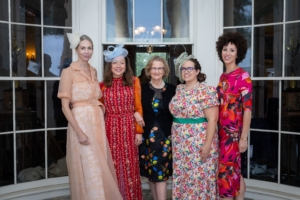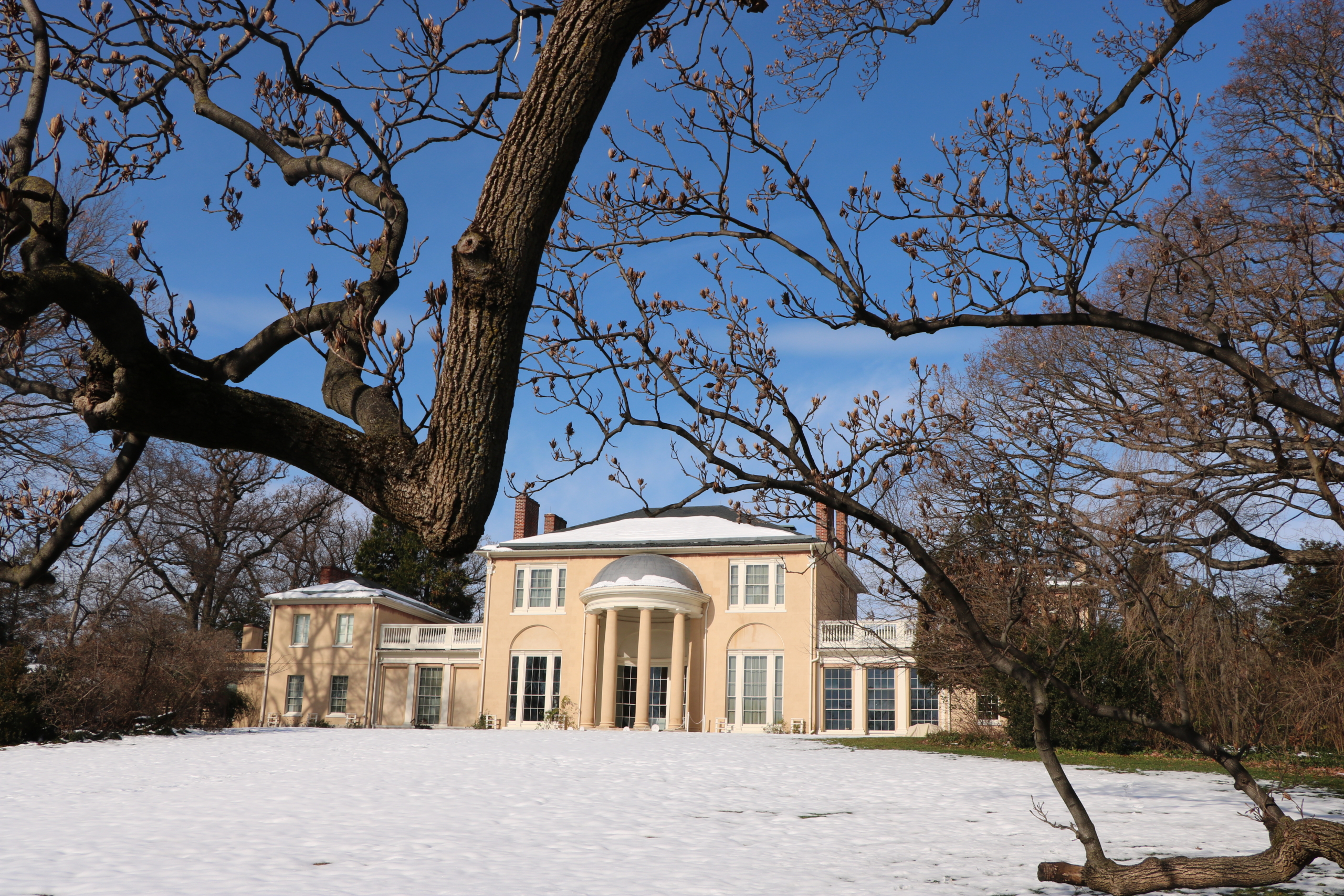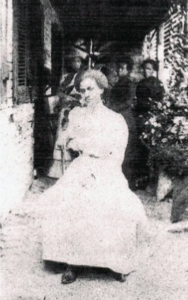Press Release
April 8, 2025
Contact
Janet Wall
Director of Development & Communications
press@tudorplace.org | 202-580-7323
WASHINGTON, DC – Tudor Place Historic House & Garden has been honored with the prestigious Outstanding Public History Project Award by the National Council on Public History (NCPH) for the groundbreaking 2024 installation and tour, Ancestral Spaces: People of African Descent at Tudor Place. This award recognizes innovative work that contributes to a broader public reflection of the past and serves as a model of professional public history practice. Recognition for this guided tour experience was made possible through generous funding from an Institute for Museum and Library Services (IMLS) Inspire! Grant. This funding underscores the incredible impact grants have on our ability to serve residents of the DMV, visitors from the United States and those from around the world.
For ten months of 2024, Ancestral Spaces: People of African Descent at Tudor Place was the guided tour experience presented at the federal-style mansion and garden known for its familial ties to Martha Washington. The NCPH award committee was impressed by the museum’s commitment to challenge the power dynamics inherent in the historic house through the experiences and voices of its enslaved. Rather than including these perspectives as a supplement, Curator Rob DeHart collaborated with the descendant community and the Ancestral Spaces Advisory Committee, to fundamentally reimagine the traditional house tour, from the portraits on the walls to the tableware reconstructed from pottery shards. The award committee noted that the high quality of research and innovative interpretation could serve as a model for other sites with equally complex histories. “The popularity of Ancestral Spaces showed that visitors desire a critical authentic retelling of the past. It made Tudor Place welcoming to people who often do not see their histories represented,” said Mr. DeHart, who accepted the award on behalf of Tudor Place at the NCPH annual meeting in Montreal, Quebec on March 29, 2025.
In these challenging times, where threats of funding cuts loom large, it is critical to understand the role grants play in fostering innovation, preserving cultural heritage and providing resources to underserved populations. The Inspire! Grant is a direct reflection of the transformative impact that thoughtful investment in grants has on organizations, their projects and the communities they serve.
Grants provided by IMLS are vital in enabling organizations like Tudor Place and other small museums to achieve meaningful progress in education, arts and culture, and history and heritage. Without the financial support from these programs, many important projects that benefit local communities, enrich cultural awareness, and advance education, would simply not be possible.
As we celebrate this achievement, we are reminded of the continued importance of advocating for strong federal support for grant programs. With funding from IMLS and other key initiatives, Tudor Place can continue to grow, thrive and make a lasting difference. We urge community members, neighbors, friends and partners to voice support for these essential programs that enable organizations like ours, to succeed in making a meaningful impact today and for future generations to come.
Excerpts of stories and audio recordings from Ancestral Spaces, can be accessed on Tudor Place’s guide on the Bloomberg Connects app, a free download from Google Play or the Apple app store. For more information, please visit https://www.bloombergconnects.org/guides/.
Open Tuesday – Sunday for guided tours of the historic house and self-guided garden visits. Advance registration highly recommended.
ABOUT TUDOR PLACE HISTORIC HOUSE & GARDEN. Tudor Place preserves the stories of six generations of descendants of Martha Washington, and the enslaved and free people who lived and labored here. By examining their legacy, we challenge ourselves and our visitors to celebrate the triumphs and to confront the complexities of the past. For more information, please visit www.tudorplace.org and follow us on Facebook, Instagram, YouTube or LinkedIn.
ABOUT THE INSTITUTE OF MUSEUM AND LIBRARY SERVICES (IMLS) Inspire! Grants for Small Museums is a special initiative of the Museums for America program. It is designed to support small museums of all disciplines in project-based efforts to serve the public through exhibitions, educational/interpretive programs, digital learning resources, policy development and institutional planning, technology enhancements, professional development, community outreach, audience development, and/or collections management, curation, care, and conservation. Inspire! has three program objectives: lifelong learning, institutional capacity and collections stewardship and access. For more information, please visit https://www.imls.gov/.
ABOUT THE NATIONAL COUNCIL ON PUBLIC HISTORY (NCPH) which inspires public engagement with the past and serves the needs of practitioners in putting history to work in the world by building community among historians, expanding professional skills and tools, fostering critical reflection on historical practice, and publicly advocating for history and historians. For more information, please visit https://ncph.org/.
###







